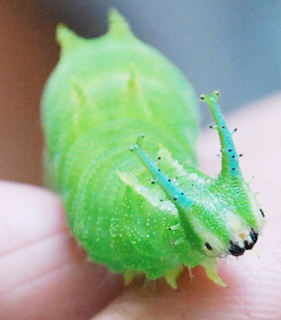Win, win...

October 31st was a big day for me. It had nothing to do with Halloween, although E made a pretty cute Hermione Granger. She pulled together a school girl outfit with a skirt, tee and sweater, and though she doesn't own Mary Janes, the gold and silver stars on her black ankle boots were fitting enough. And thanks to our neighbors, who tend to do Halloween in a big way and keep a box of costumes in the attic, she had an actual Gryffindor robe, complete with embroidered Hogwarts crest. She also had a pretty cool-looking wand, magically fashioned once upon a time of chopstick and hot glue, which her brother had brought home years ago from a Harry-Potter-themed birthday party (at the same neighbors' house). With the magic of Hairstory's Powder and Undressed , it was not at all hard to give her some adorably wild hair, and we have a resulting video of her saying (in a convincingly snooty voice), "It's levi-OH-sa, not levio-SAH. And by the way, you have some dirt on yo...
